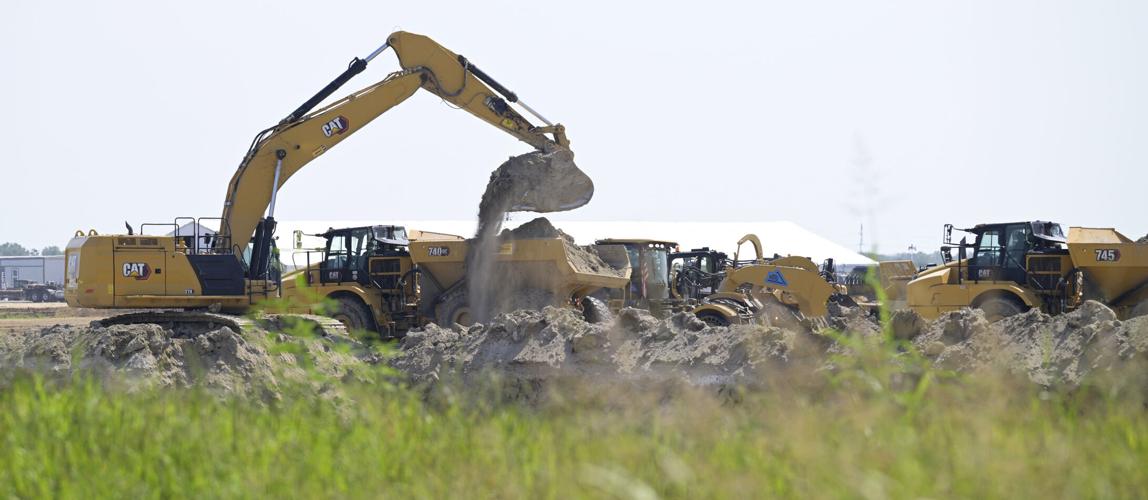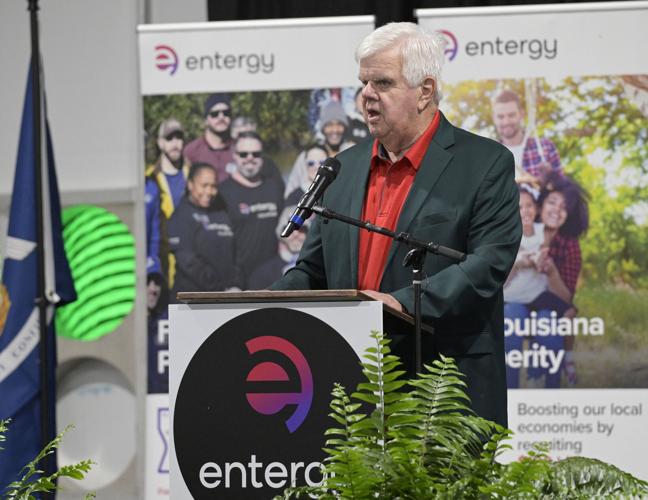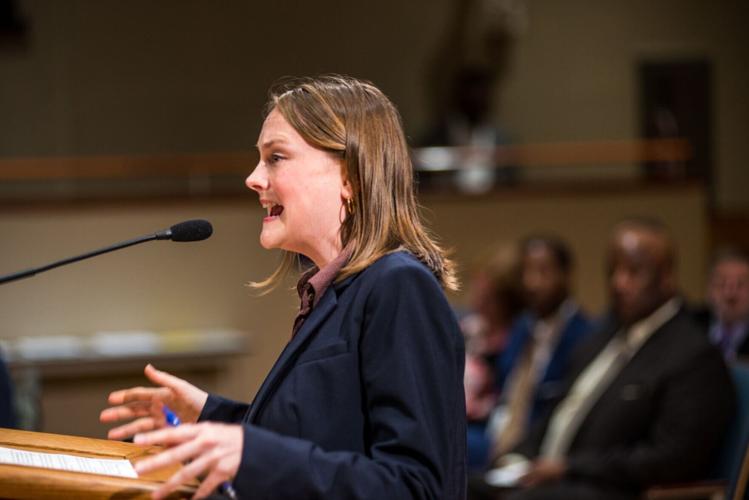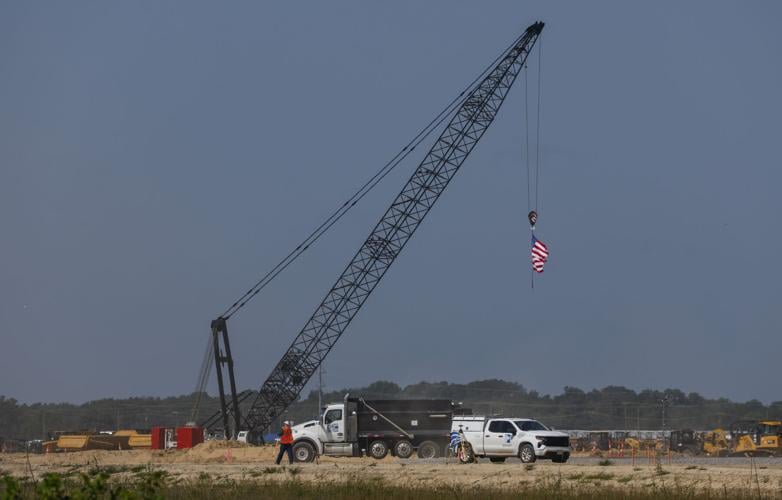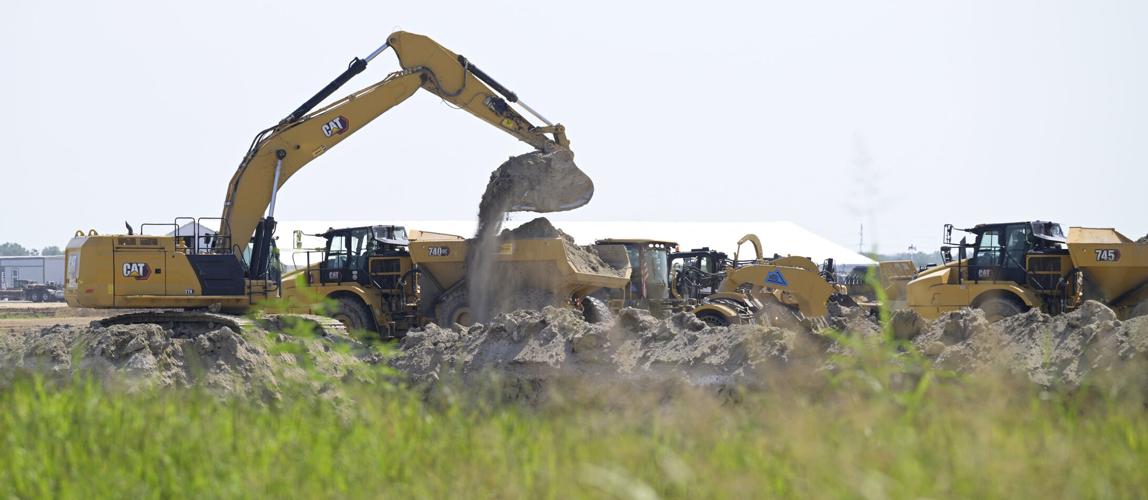State regulators on Wednesday approved a controversial plan to power tech giant Meta's largest artificial intelligence data center yet, to be built in rural northeast Louisiana, clearing the way for construction of three gas-fired electricity plants.
The Public Service Commission voted 4-1 in favor of the plan proposed by Entergy at a meeting in the city of Plaquemine following hours of public debate. The power plan is key for Meta's $10 billion facility to move forward.
The project will be built on former agricultural land the size of around 70 football fields. Meta CEO Mark Zuckerberg has spoken of further expanding it to a size that would rival the footprint of Manhattan as the company dives headlong into the high-stakes race to dominate the emerging AI industry.
Wednesday's approval was largely expected as Louisiana officials, including Gov. Jeff Landry, have welcomed the project as an economic development gamechanger in a long-struggling region of the state. But the project in Richland Parish has also drawn sharp criticism over its huge energy needs.
Much of the debate has involved whether average electricity ratepayers and businesses statewide will end up shouldering at least some of the costs associated with the power plan Entergy has set out for the facility. Entergy says there are safeguards in place and argues that the new plants will ultimately benefit everyone.

Louisiana Public Service Commissioner Foster Campbell speaks during a groundbreaking ceremony for Smalling Substation near Rayville, La., Friday, Jun 27, 2025. The substation will serve the Meta Richland Parish Data Center, which is now under construction.
Those divisions were on display at Wednesday's fast-tracked vote, which occurred a couple months before initially planned.
"I'm not for this project 1%, 10%, or 100%," said Commissioner Foster Campbell, who represents the district where the data center will be built. "I'm for this project 1,000%."
Commissioner Davante Lewis cast the only vote against the plan. He said the agreement left fundamental questions on the table that were "too bitter...to swallow."
Proponents spoke at length of the high rates of poverty in the region and the need for high-paying jobs in north Louisiana. Work currently underway on the facility is already leading to "exponential growth" for small businesses in the area, said Rob Cleveland, head of the economic development authority in northeast Louisiana.

Public Service Commissioner Davante Lewis
“We chose Louisiana as the home for our largest data center yet for a variety of reasons, including excellent access to infrastructure, a strong workforce and a reliable grid," said Ashley Settle, a spokesperson for Meta.
But over a dozen people from across the state urged regulators to delay the vote, raising concerns over rising gas prices, unclear job commitments by the tech company, water demands of the facility and environmental risks.
"Meta has provided no assurance that these supposed jobs are going to go to Louisiana residents," said Miriam Abuzied, a Lake Charles resident. "With a financial and environmental impact this big, please please push this vote."
'Enormous risks'
Meta’s data center will need roughly three times the amount of electricity that the city of New Orleans uses in a year, and increase Entergy's electric needs in the state by around 30%. With the commission's approval, the utility can now begin constructing the three new plants and other transmission infrastructure.
Two of the electricity plants will be located near the data center in Richland Parish and a third in St. Charles Parish.
Both environmental advocacy groups and oil, gas and petrochemical companies disputed Entergy’s request to build over $5 billion in new infrastructure, arguing that the plan risks increased bills for all types of ratepayers.
"The imposition of the risk to ratepayers, and the increase in Entergy returns, comes upfront, while the potential benefits to the ratepayers may materialize over the course of many years but are based on speculative assumptions and thus far from certain at this time," the Louisiana Energy Users Group (LEUG) wrote in a letter on Monday to the regulators.
LEUG is composed of around 30 companies in the state, including Exxon, Shell and Dow, which collectively spend over $5.5 billion in the state each year on electricity and other services.

Kevin Janda, center, Meta director of Data Center Strategy, speaks with Gov. Jeff Landry, left of Janda, after an event in Rayville, La., Wednesday, Dec. 4, 2024, to announce that Meta will build an artificial intelligence optimized data center in Richland Parish.
The Alliance for Affordable Energy, a consumer and environmental nonprofit, urged the regulators to delay the decision until October, when the commissioners had originally planned to cast their votes. The Alliance had warned of grid reliability and environmental risks of the new fossil fuel-powered gas plants, which would produce pollution and climate warming emissions.
"The commission has approved a deal that transfers enormous risks of two powerful corporations to residents of Louisiana," Logan Burke, who leads the Alliance, said after the vote. "I genuinely hope that the provisions that purport to protect other customers are successful. But future deals like this must have more firm protections."
Entergy has stressed that the tech company will cover all revenue for the new plants throughout the 15-year contract between them. Phillip May, Entergy Louisiana president and CEO, said in a statement after the vote that "these investments will help power one of the most advanced data centers in the world and will also reinforce our grid, create economic opportunity and support a more sustainable energy future across Louisiana."
"Importantly, Meta is paying its share of the costs for the infrastructure needed to support its operations, ensuring that other customers are protected from those expenses," said May.
But of particular concern to opponents is the plants' lifespan of up to 40 years since Meta's contract is only for 15, potentially leaving other ratepayers on the hook if the tech company leaves. All customers will also pay for a $550 million transmission line and operational costs related to the plants.

Alliance for Affordable Energy executive director Logan Atkinson Burke.
Supporters say the plants can serve all customers if Meta leaves after its 15-year deal is up, allowing Entergy to retire older plants. But residents from Thibodaux to Monroe voiced caution.
"What's the risk in waiting a little bit longer?" asked Samm Clark, a Baton Rouge graduate student who grew up in Monroe.
She described the promise of up to 500 permanent jobs by Meta for such a massive facility as "abysmal."
A single 'no'
For Lewis, the only of the five regulators who voiced skepticism about the plan, the risks associated with the plants were a major sticking point. Still, he said that the agreement that passed had better protections than Entergy's initial request.
"One of the challenges that I just could not get over was the proliferation of gas turbines that we were using in the state," Lewis said following the vote.
While the Meta plan may only affect bills by a dollar, as Entergy argued, fueling the plants as prices rise was a hazard that Lewis also wanted to see better addressed. Entergy also did not undergo a competitive bid process for the plan as is typical, citing Meta's fast timeline.

Construction begins on the future Meta AI data center in Holly Ridge, La., Friday, July 11, 2025. (Photo by Sophia Germer, The Times-Picayune)
Lewis further questioned whether Meta would still receive all the power it needs even if the grid is strained due to high demand. A forced blackout in the New Orleans area occurred in May because of spiking electricity demand.
The vote took place before a judge who oversaw a recent hearing on the case was able to release her legal recommendations. Entergy and the four regulators agreed that the issues have already been thoroughly discussed, saying there was no point in further delaying such an important project.
The hearing process involving the judge is only intended to be informational. The PSC is not required to wait for the judge's recommendations or abide by them.
Despite that, Entergy had reached a compromise prior to the vote with some of the parties involved in the case, including environmental groups Sierra Club and the Southern Renewable Energy Association, as well as hired advisors to the PSC regulators and Walmart.
Meta has agreed to provide 1500 megawatts of renewable energy to the grid as part of the deal, though the commitment is not legally binding.

